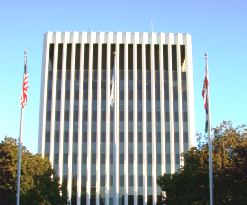
BY BRADEN CARTWRIGHT
Daily Post Staff Writer
Opponents of Palo Alto’s new business tax say that the public should’ve known that the city had a $40 million surplus before voting.
But the city hid the surplus to get the tax through, even though there was plenty of money in the bank, opponents of Measure K told the Post.
“Palo Alto is greedy,” resident Ze’ev Wurman said in an interview.
“The city is just taking money from people for no purpose,” said Alan Kaiser, who wrote the argument against the business tax measure.
The city closed its books on June 30 last year for the 2021-22 fiscal year and sent its financial information to an auditor: Macias, Gini and O’Connell LLP in Walnut Creek.
At the same time, Palo Alto City Council was working on a business tax measure to put on the November ballot. The city’s financial officers said that Palo Alto would lose firefighters and police officers without one, and the city also needed money for affordable housing and separating the Caltrain tracks from the road.
The tax was approved by 67% of voters on Nov. 8.
The audit was released a week later, on Nov. 16.
The $40.6 million surplus isn’t back up to pre-pandemic levels. The city’s surplus peaked in the 2018-19 fiscal year at $76 million, following a $59.5 million surplus in the 2017-18 fiscal year.
But the financial report from the auditor included many signs that a recovery is underway.
Revenue from sales tax and hotel tax went up, as did charges for city services.
“Economic recovery began in earnest in fiscal year 2022 with the expectation of full recovery over several years,” a report from City Manager Ed Shikada and Chief Financial Officer Kiely Nose said.
Ze’ev Wurman, who opposed the business tax, said in an interview that he thinks that Palo Alto obviously has enough money, but the city hid this fact to get the tax through.
The city will continue to raise the tax now that one is on the books, he said.
Kaiser, who is the treasurer of the Santa Clara County Libertarian Party, said the tax revenue will go toward raising salaries that are already high. Businesses are struggling, and a new tax won’t help, he said.
“There’s a moral decision that’s being made that we don’t like big companies, and we’re going to focus the tax on them because they can afford it,” he said.
Both Kaiser and Wurman said that the city can put a tax measure before at any time, and voters are likely to approve it.
“I consider it a bit foolish, but that’s their choice,” Wurman said.
City Accountant Christine Paras said in an email to the Post that last year’s discussions about the business tax were focused on the General Fund, which is just one part of the city budget. There are other funds too and some of them are restricted, such as grants and some fees on development.
The city’s long-range General Fund financial forecast shows future deficits for the fiscal years ending in 2025 and 2026 totaling $3.4 million and $2.6 million, Paras said.
Businesses will pay their first installment of the tax in January 2024, and they’ll be charged half the rate until January 2026.
The tax is expected to bring in about $9.6 million per year.

“The city’s financial officers said that Palo Alto would lose firefighters and police officers without one”. So is Ed Shikada a horrible accountant or are there really cops/firefighters costing PA $350,000.00 a year and $40 million bucks wasn’t enough?
This mentality of doing anything to pass a tax is sleazy.
The PA Daily was basically an accomplise to the city fleecing its citizens by endorsing the issue prior to the election although others were writing letters to no avail now your trying to take it back? Maybe have your journalists do investigative reporting instead of backing the status quo. The Daily used to be for the people now its an arm for city hall.
Funny how the government wants to police “misinformation” but doesn’t provide adequate information when people face an important question at the polls.
Notice also how the city has changed how it publishes City Council agendas and the videos of the CC meetings. Also note how they’re no longer abiding by the rules to publish notices a certain number of days in advance.
But I guess that’s why we have such a huge Communications staff. Hah!
We need a do-over.